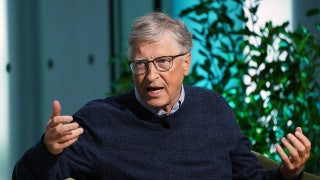Miami – The early voting station at the John F. Kennedy Library in Hialeah, Florida, is supposed to be bona fide Marco Rubio territory. In 1999, voters in this working class, predominantly Cuban-American city helped propel Rubio from West Miami city commissioner to a seat in the Florida House of Representatives. And in 2010, the Hialeah’s staunch Latino Republican base formed the bedrock for a coalition of conservative voters that sent the young Cuban-American politician to the U.S. Senate.
But Republican presidential front-runner Donald Trump is chipping away support in Rubio’s stronghold.
We need a president who knows how to make money in good and bad times. [Trump] has shown he can do that with his businesses.
Near the entrance to the library’s parking lot, a quartet of Cuban-American men hold up Trump placards and hand out “Make America Great Again” bumper stickers to voters.
Among them is Julio Martinez, a Cuban-American Vietnam veteran who served as Hialeah’s mayor from 1991 to 1993. After personally meeting the billionaire real estate mogul during Trump’s rally in nearby Doral this past June, Martinez said he signed on as the campaign’s volunteer Latino coordinator in Miami-Dade County, home to 46 percent of the nation’s Cuban-American population and 260,000 registered Latino Republicans.
“There is a lot of support for Donald in the Latino community, especially among Cubans,” the former mayor told Fox News Latino. “Some Cubans feel obligated to vote for Rubio, but they still identify with Trump.”
Martinez has recruited other Cuban-Americans like Rene Santiesteban to stump for the GOP usurper. A delivery driver who came to Miami from Cuba eight years ago, Santiesteban became a U.S. citizen in 2011. He didn’t vote in the last presidential election, but this time he has cast his ballot for Trump.
“He’s a radical change from traditional politicians,” said Santiesteban, who sported a white Trump campaign T-shirt. “That’s what we need now. We need someone the world can respect.”
Martinez and Santiesteban said their support for Trump has not wavered despite the fiery controversies that have plagued the Donald on the campaign trail. In recent days, a Trump rally in St. Louis was marred by violent incidents and another one in Chicago was canceled due to safety concerns following confrontations between the front-runner’s supporters and protesters.
On Sunday, Trump suggested he would pay the legal fees of a supporter who sucker punched and threatened to kill a protester at a North Carolina rally.
All this after Trump launched his campaign by promising to erect a wall along the Texas-Mexico border to keep out undocumented immigrants, whom he assailed as killers and rapists. Despite his inflammatory rhetoric, Trump maintains his draw among Latino voters is strong.
That certainly seems evident in Florida, where Rubio is battling to stay alive in the presidential race — polls show him losing to Trump by almost 20 points. According to the latest Real Clear Politics average poll, Trump is dominating Rubio 41.9-23.2 percent statewide.
While Trump's appeal is not as forceful among Latinos – 19 percent, according to a recent Washington Post-Univision News poll – 40 percent of the same respondents said Trump is the best candidate to handle the economy.
And results for a Florida Atlantic University survey released this weekend show Trump with a narrow lead among Latino Republicans at 37 percent. Rubio trails Trump by 2.5 percentage points. Senator Ted Cruz, the other Cuban-American in the Republican presidential race, got 20.5 percent and former Ohio governor John Kasich has 8 percent.
At Hialeah’s Kennedy library, at least half a dozen people in a one-hour span said they voted for Trump. A Cuban-American couple, who would only provide their first names, Nelson and Yani, said they voted for Trump because they like what he stands for.
“I think Donald Trump is going to make a difference in this country,” Nelson said. “He’s going to follow through on his policies.”
Yani, who said she voted for Barack Obama in 2012, said her disappointment with both parties led her to vote for Trump.
“We need a president who knows how to make money in good and bad times,” Yani said. “He has shown he can do that with his businesses.”












































